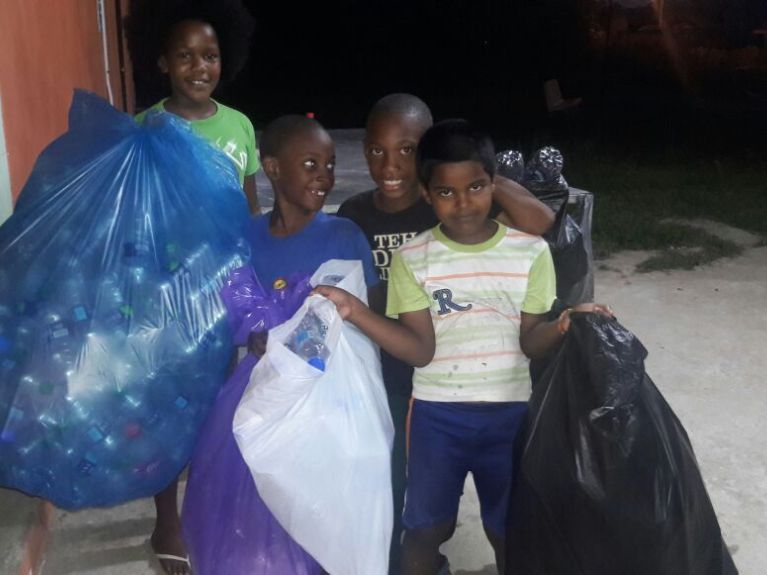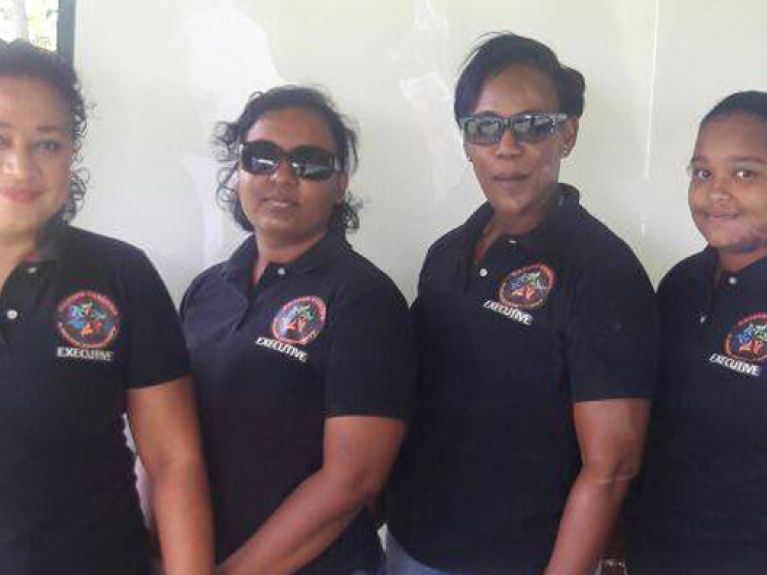Cashew Gardens Recycling Programme, Trinidad & Tobago
The Cashew Garden Recycling team is comprised of volunteers from the council as well as children from the community who have a passion for conversing and protecting the environment.

Project name: Cashew Gardens Recycling Programme
Project location: Chaguanas, Trinidad & Tobago
Facebook: https://www.facebook.com/CashewGardensAModelCommunity/
Project description:
On the 25th September, 2016, The Cashew Gardens Community Council joined fourteen (14) other communities to clean rivers across the country. Data on the number and types of garbage was collected. Cashew Gardens (Caparo watershed) ranked fifth based on the following:
- Number of bags of plastics collected
- Number of bags of glass collected
- Total number of bags of garbage collected
The Cashew Gardens Community Council participated in a workshop on the 18th September 2016 which gave us the opportunity to voice our concerns with respect to pollution of our rivers and by extension our watersheds. Of the twelve (12) communities present, all groups indicated that solid waste was the most important pollutant.
The Cashew Gardens Community Council decided to implement a Community Recycling programme in our community. On 6th December 2016, the Council held a meeting to educate the community members on the programme and win their support. The meeting was well attended, especially by children who were urged by the various speakers to encourage their parents to implement recycling at home. Collection of recyclables began in December and the first count was conducted in January 2017.
The majority of this initiative was conducted with little or no funding.
Goal and purpose of the project:
The purpose of this project is to attack pollution at a community level by educating, collecting and ingraining the habit of recycling in Trinidad and Tobago, one community at a time. The Cashew Garden Recycling Programme hopes to drastically reduce the amount of recyclables going into our rivers, seas, lakes and landfills by 2020 and to engage in upcycling initiatives so as to to become a model community that is self-sufficient, self-reliant and self-sustainable. The long term goal is to create a holistic community focusing on education, environment and sustainable development by improving ourselves, our community and our country.

Motivation of the applicant / applicant team:
The Cashew Garden Recycling team is comprised of volunteers from the council as well as children from the community who have a passion for conversing and protecting the environment. Subsequently, we decided to become an agent of change by managing the solid waste from our small community in order to prevent waste and pollution from destroying our ecosystems and marine environment. After data was collected from approximately 150 household for 6 months, it was disturbing to note that the average household uses nearly 3,000 plastic bottles per month. Currently, we are engaged in a drive to expand our community project to our surrounding communities which has an approximation of over 10,000 households.
Use of prize money:
To expand and implement a recycling and upcycling programme within the Cashew Gardens Community and environment with the the following as the expected outcomes:
- A recyclable collection system which will remove recyclables collected at a household level, sort them and process them for transportation to recycling companies. This will also include a data collection process whereby information on quantities and types of recyclables will be collected,
- Research and Development into a suitable upcycling product made from the recyclables collected by the community,
- Training of individuals in upcycling and waste management for the community members,
- Development of a business model to implement the upcycling programme and project for environmental and financial sustainability,
- Implementation of the upcycling programme and production of an upcycled product.